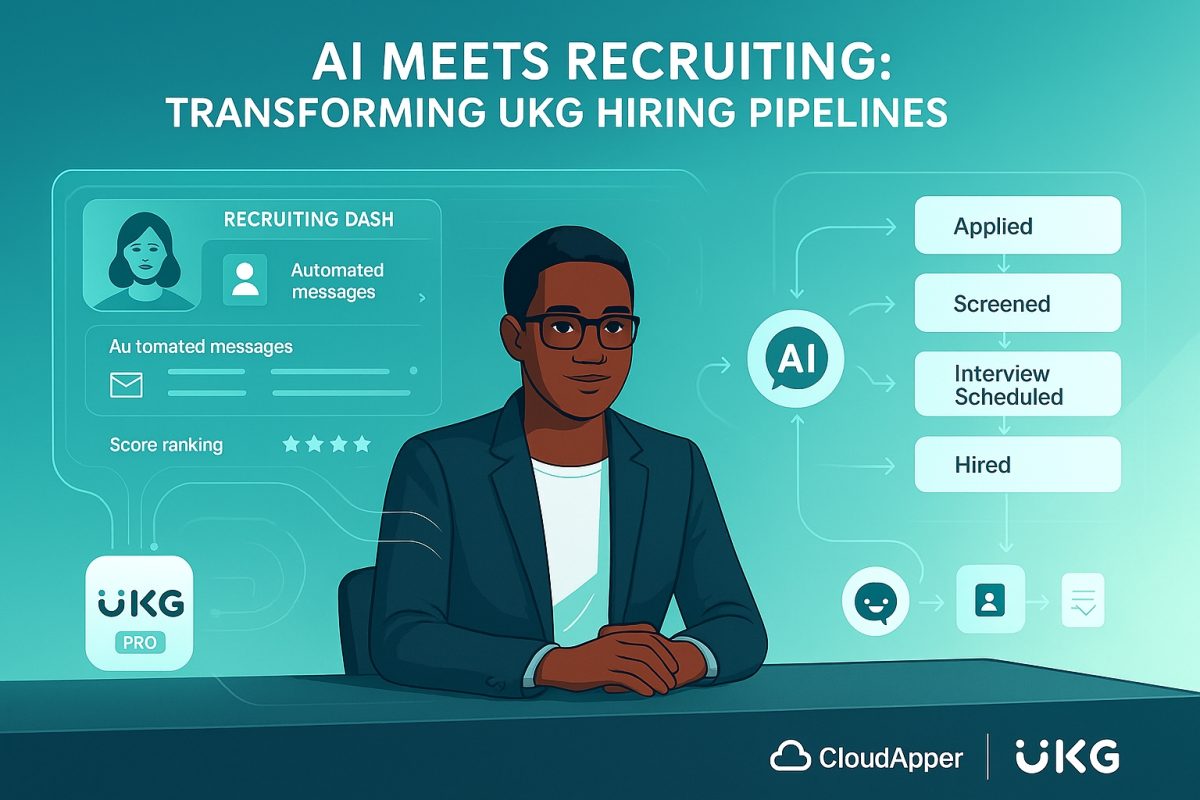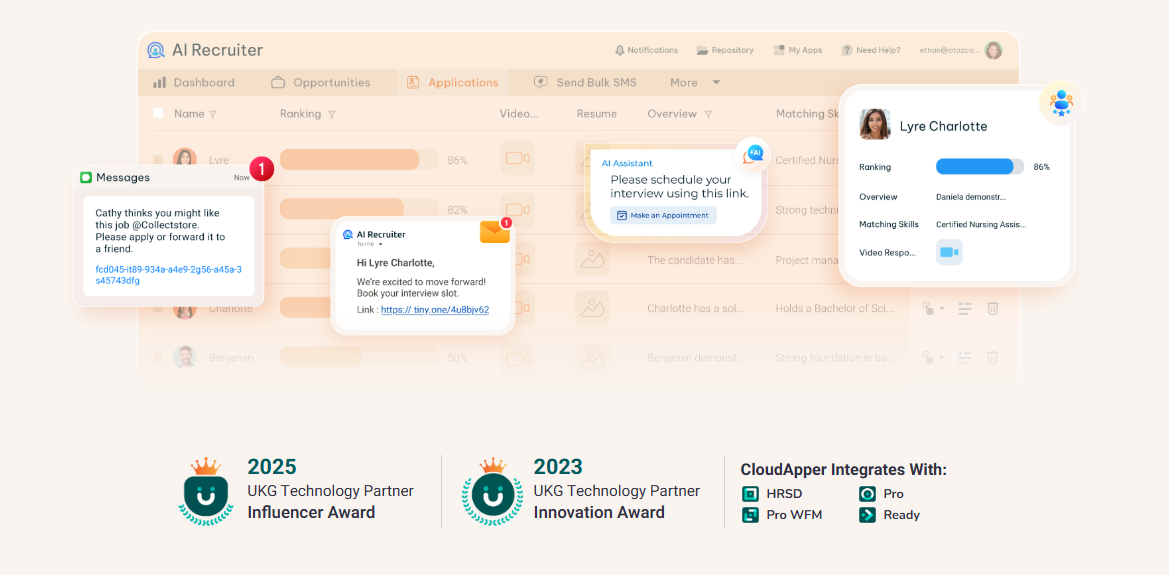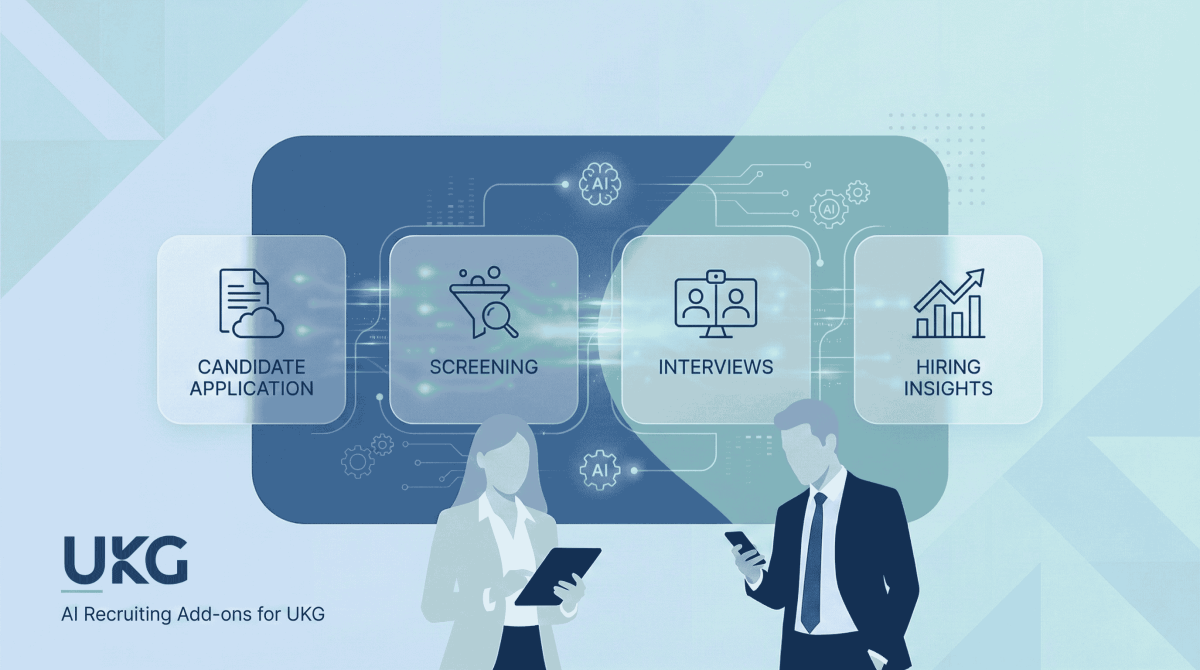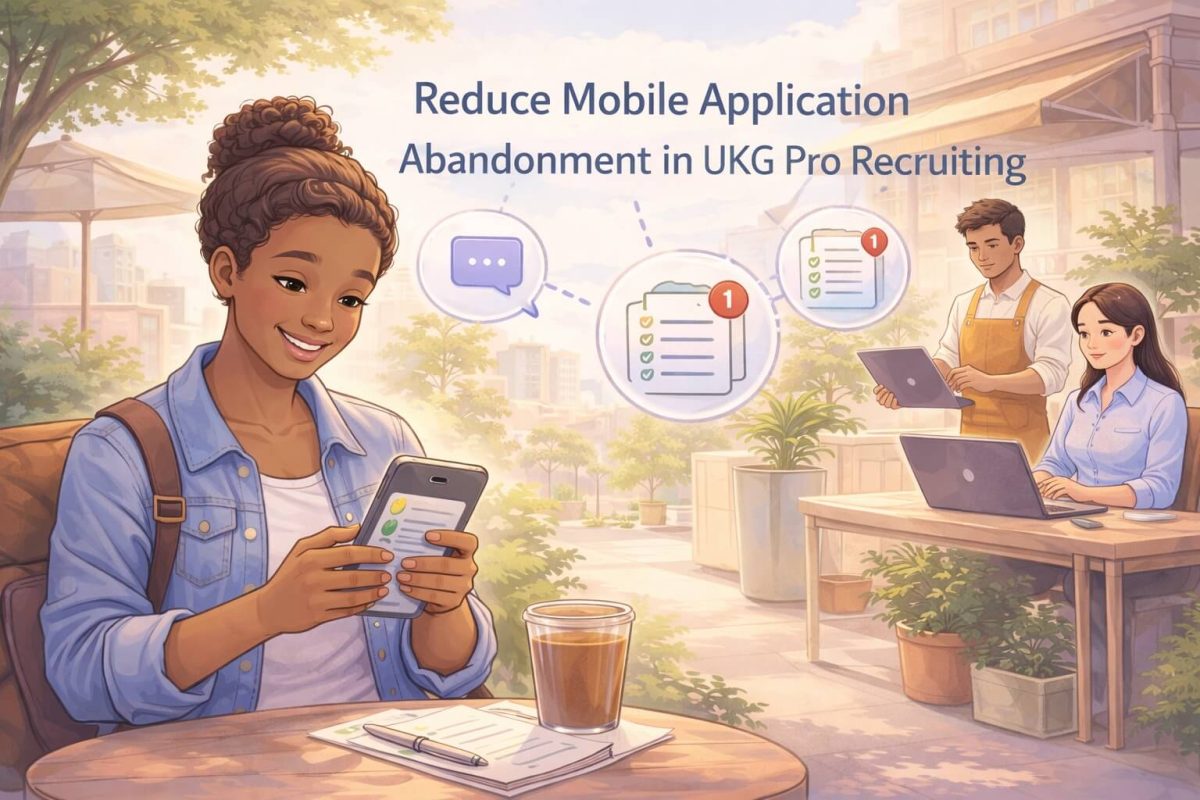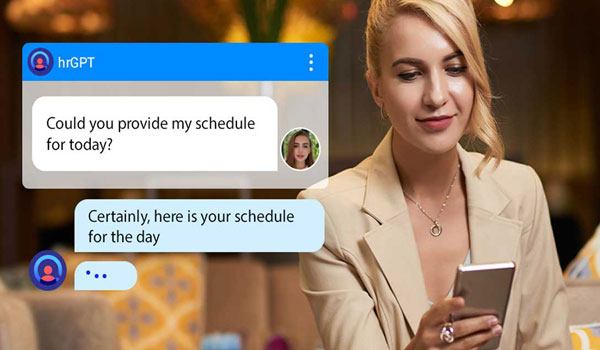Have questions about how CloudApper AI Recruiter works with UKG? This FAQ covers everything from integration and customization to candidate engagement, bias reduction, and offer automation. Learn how healthcare organizations and enterprises are streamlining their hiring with AI — faster, fairer, and fully scalable.
Table of Contents
In today’s competitive hiring landscape, speed, personalization, and automation are essential — not optional. By implementing AI integration with UKG Pro, one healthcare organization completely transformed its recruiting process. The result? Automated screening, faster applicant engagement, and a significant reduction in time-to-hire — all while improving candidate quality and recruiter efficiency.
The Challenge: Legacy Workflows = Missed Talent
The organization was facing a familiar set of recruiting roadblocks:
-
Lengthy application forms caused high candidate drop-off rates
-
Recruiters were overwhelmed by resumes
-
Communication delays slowed down the hiring process
-
Unqualified candidates consumed unnecessary time and effort
What they needed wasn’t just another ATS — it was an intelligent, AI-powered layer that could handle screening, communication, and scoring at scale.
Here’s a behind-the-scenes look at how they did it — step by step.
Step 1: Bi-Directional Sync with UKG Pro Recruiting
The first phase involved seamless data synchronization:
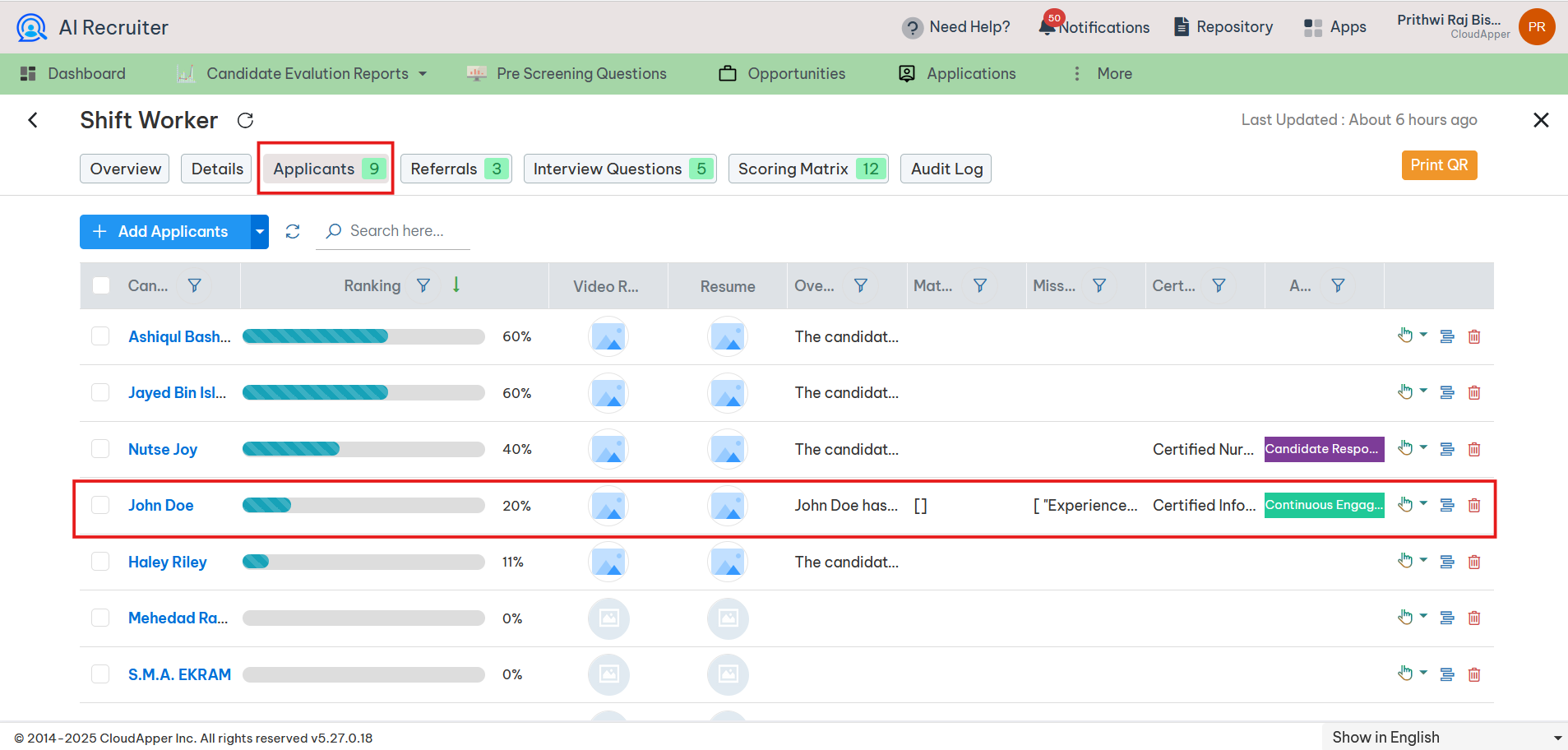
- Job Opportunities, Job Locations, Candidates, and Applicants were automatically pulled from UKG Pro Recruiting at regular intervals.
-
The system also ensured Applicants were linked with their job locations to preserve context for interviews and workforce planning.
This integration laid the foundation for real-time data usage across workflows.
Step 2: Setting Up Structured Screening With Interview Question Templates
Each job opportunity was enriched with:
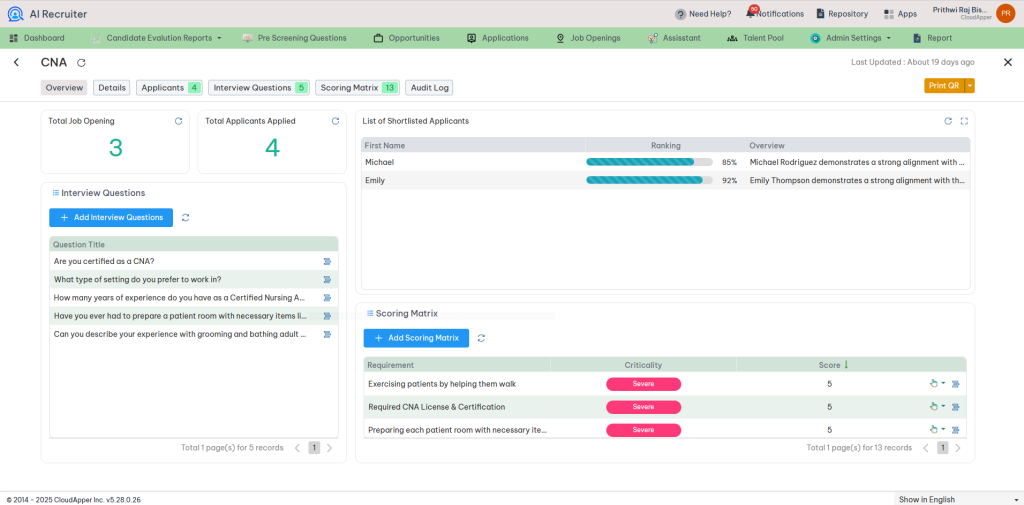
- Role-specific interview questions, customizable per job title (e.g., CNA, LPN, RN).
-
Templates were embedded directly into the opportunity records.
-
The AI checked regularly if candidates received and completed the interview questions.
Step 3: Candidate Engagement at Scale
AI-powered messaging activated once an applicant entered the system:
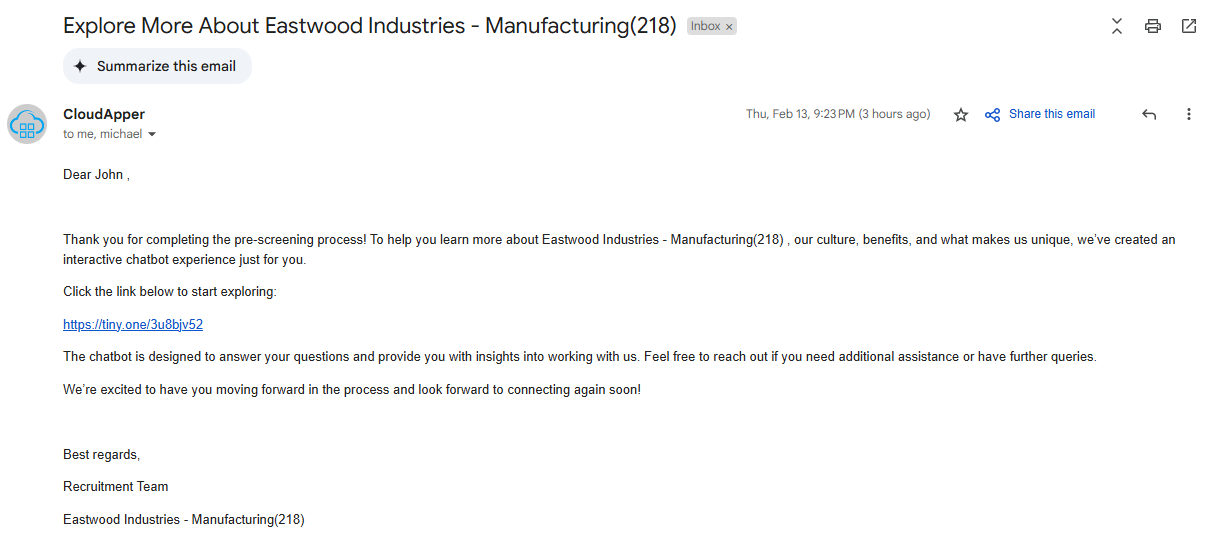
-
Automated SMS and email messages collected key details like certifications, availability, shift preferences, and interest in alternate roles (e.g., dietary, housekeeping).
-
For unqualified candidates, the AI offered CNA training program referrals or redirected them to more suitable roles.
Step 4: Intelligent Screening and Ranking
After interview responses were submitted:
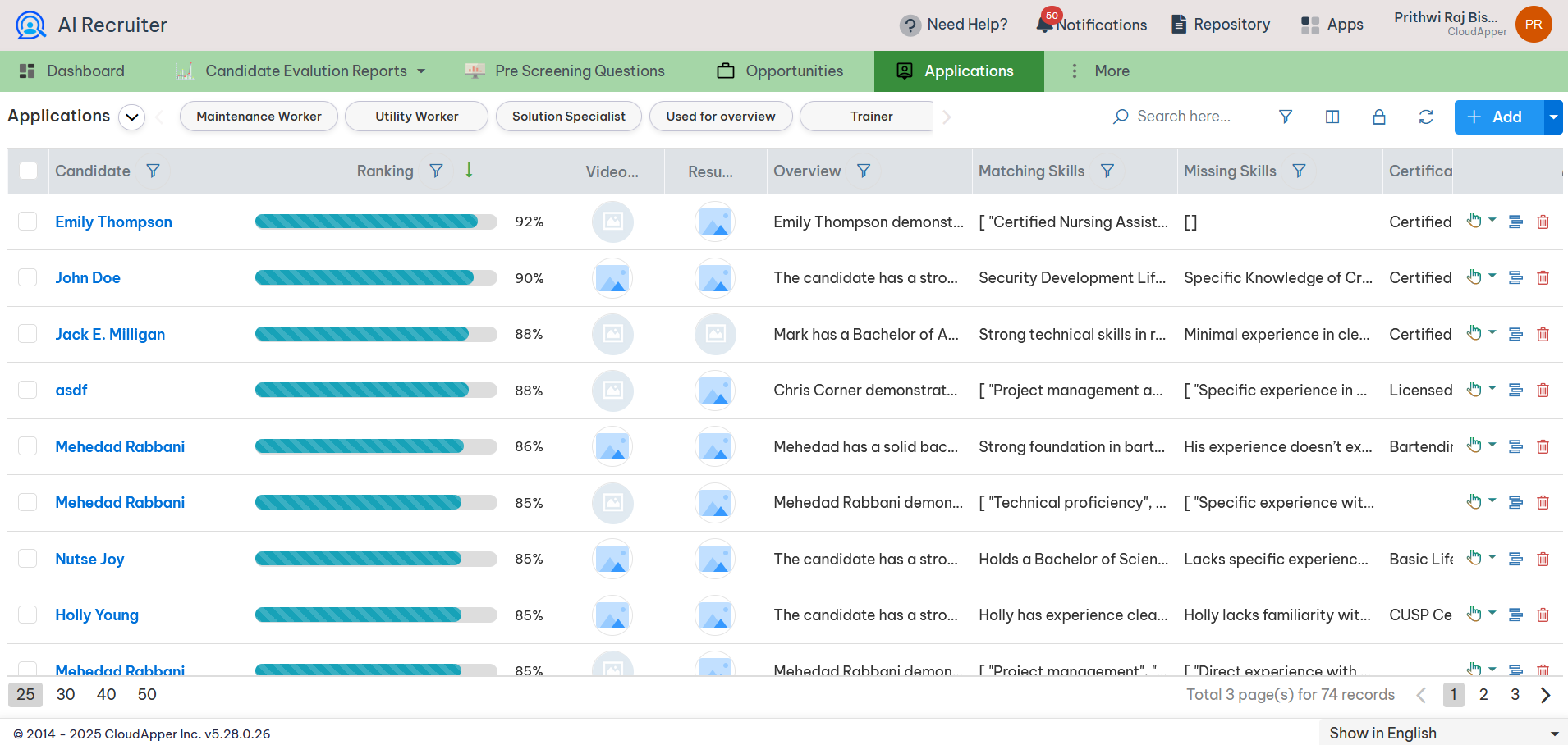
-
The AI evaluated answers and screened resumes, cross-referencing them against the job’s requirements and the candidate’s experience.
-
It then scored and ranked candidates, prioritizing top fits while keeping unqualified talent engaged elsewhere in the funnel.
Candidates were measured not only on experience, but also communication, willingness to learn, and reliability — all through AI-driven analysis.
Step 5: Threshold-Based Interview Scheduling
Once a candidate surpassed a pre-set threshold score, they were automatically sent a Calendly link to schedule an interview.
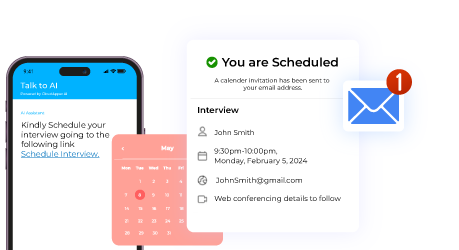
The customer had flexibility:
-
Thresholds could be set either in UKG Pro Recruiting or directly within the CloudApper AI Recruiter interface.
-
Calendly links were synced and embedded in both the chatbot and the application record for full traceability.
Step 6: Ongoing Nurture and Notifications
For candidates who didn’t complete the interview questions:
-
The system automatically followed up via SMS/email reminders.
-
Custom chatbot conversations helped candidates understand the company, culture, and process.
Additionally, those progressing in the funnel received:
-
Updates every 48 hours from leaders (e.g., CPO or CEO), configured during onboarding.
-
Personalized rejection emails for those disqualified, offering referrals and job suggestions.
Step 7: Offer Letter Automation
The final stage was handled with precision:
-
Offer letters were generated automatically, with support for multiple pay types (salary, hourly, commission, flat rate).
-
Letters included summary reports and templated PDFs, routed to the hiring team for approval.
Bonus: Compliance and Bias Reduction
Throughout the process, AI worked to minimize bias:
-
Candidate resumes were standardized, stripping identifiers like schools, companies, ages, and affiliations.
-
Responses were linguistically normalized, allowing for objective evaluation.
This ensured:
-
Diversity and inclusion goals were upheld.
-
The system met compliance standards in sensitive markets like New York
The Impact: From Admin Work to Strategic Hiring
With the CloudApper AI Recruiter in place, the healthcare provider saw results fast:
| Metric | Before AI | After AI |
|---|---|---|
| Time-to-Hire | 3+ weeks | ⬇️ 50% |
| Candidate Drop-Offs | High | 🔻 Substantially reduced |
| Recruiter Time Spent on Admin | 70%+ | ✅ < 30% |
| Qualified Interviews Scheduled | Ad hoc | ⚡ Triggered by score thresholds |
Why AI Integration with UKG Is the Future of Hiring
This healthcare company proved that AI integration with UKG isn’t just a tech upgrade — it’s a strategic transformation. Recruiters spent less time on admin and more time making high-quality hires. Candidates moved quickly through the funnel with a personalized, modern experience.
Ready to Transform Your Recruiting with AI?
❓ Frequently Asked Questions (FAQ)
1. How does CloudApper AI Recruiter integrate with UKG Pro?
CloudApper establishes a bi-directional sync with UKG Pro Recruiting. It automatically pulls job requisitions, applicants, and job locations, and pushes back structured data like candidate scores and interview links — all without requiring custom development.
2. Can we customize interview questions and scoring criteria?
Yes. You can create role-specific interview templates and assign weightings to questions using a configurable scoring matrix. These can be managed within UKG Pro or the CloudApper interface.
3. What happens to unqualified applicants?
The AI redirects unqualified candidates to alternative roles like dietary aide or housekeeping, or refers them to CNA training programs to keep them engaged in the hiring pipeline.
4. How does the AI ensure unbiased hiring?
It removes identifying details like school names, companies, ages, and affiliations from resumes. Language is also standardized to ensure fair evaluation based only on qualifications.
5. How is candidate engagement handled?
AI-driven SMS and email workflows collect information, send reminders, and provide company updates to keep candidates informed and interested throughout the process.
6. What triggers interview scheduling?
Once a candidate’s score meets or exceeds a predefined threshold, they automatically receive a Calendly link to schedule their interview. Thresholds can be adjusted in UKG or CloudApper.
7. How are offer letters generated?
Offer letters are generated automatically based on job type and pay structure. The system supports salary, hourly, commission, and flat rate formats, with templated PDFs sent for approval.
8. Can this work with UKG Ready as well?
Yes. CloudApper AI Recruiter is fully compatible with both UKG Pro and UKG Ready systems.
9. How fast can we go live?
Most customers are onboarded and live within a few days thanks to CloudApper’s no-code platform and rapid deployment process.
10. Is this scalable for multi-location hiring?
Yes. The AI supports screening, communication, and scheduling across multiple job sites and locations, making it ideal for distributed teams and high-volume hiring.


